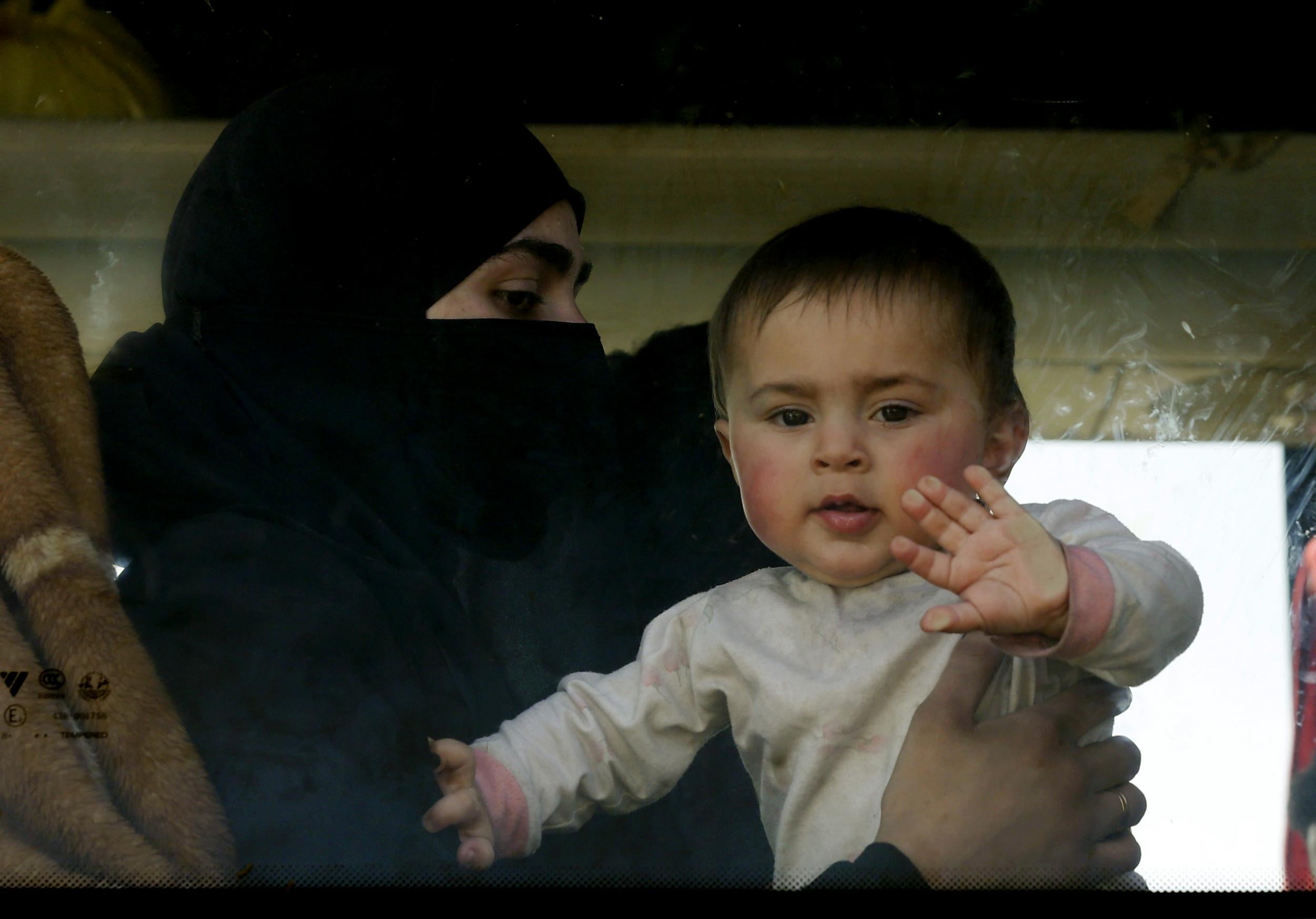Eastern Ghouta: Rebels deny reports they’re ready to lay down weapons amid exodus of civilians
Huge convoy carrying thousands of fighters and civilians leaves besieged area as talks stall over evacuating final pocket of resistance

A rebel faction in the besieged Syrian enclave of eastern Ghouta has denied reports its fighters are ready to lay down their arms and abandon the town of Douma, the last pocket of resistance in the Damascus suburb.
Russian news agency RIA quoted a Russian general staff official on Monday as saying Jaish al Islam had capitulated in talks with Russian negotiators. The claim was immediately rebuffed by the faction's political chief Mohammed Alloush, who called it “a lie devoid of truth”.
Syrian government forces have managed to seize 90 per cent of the former rebel stronghold after five weeks of ferocious air and ground assaults.

The campaign to retake the area - besieged since 2012 - has been one of the worst episodes of violence in the entire seven-year-old conflict, with an estimated 1,600 people killed. Rebels have retaliated with some of the worst rocket fire on government-controlled neighbourhoods in years, which has left dozens dead.
A UN resolution demanding a ceasefire on 21 February has been largely ignored by all sides.
The international community has condemned Syrian President Bashar al Assad and his allies in Moscow for the alleged use of illegal barrel bombs, phosphorus munitions and chlorine gas which have left the area’s approximately 400,000 residents sheltering in basements for several weeks.
At least 6,500 Failaq al-Rahman faction fighters and their families have been bussed out of the enclave in recent days to Idlib province in Syria’s northwest in an amnesty deal similar to those struck in several other episodes of Syrian urban warfare, such as Aleppo.
Jaish al Islam, all that is left of Ghouta’s rebel fighting forces, is now making its last stand in the town of Douma, with rivalries between them widening ahead of their certain defeat.
Hamza Birqdar, the group’s spokesperson, on Monday accused Failaq al Rahman of failing to mount a shared defence of Ghouta.
“The in-fighting has been terrible”, Dr Ataya Malik, who fled the air strikes in Douma to nearby Zamalka last week, told The Independent. “It has made the situation for civilians worse.”
While eastern Ghouta is technically covered by a 2017 de-escalation deal, Mr Assad says he is targeting al-Qaeda-linked factions in the area not covered by the agreement.

The tide of Syria’s war, which has just entered its eighth year, turned decisively in the government’s favour after Russian military intervention in 2015.
The fighting has killed 500,000 people and driven more than half the pre-war population of 22 million from their homes.
Join our commenting forum
Join thought-provoking conversations, follow other Independent readers and see their replies
Comments
Bookmark popover
Removed from bookmarks